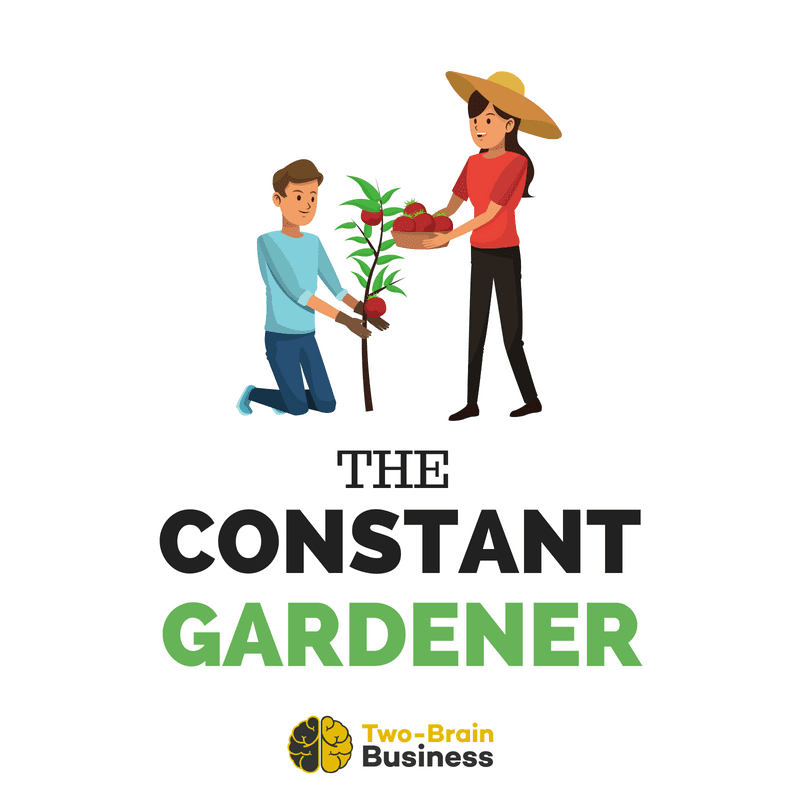When Ray Kroc joined the McDonald brothers, the business went from a single location in San Bernardino to the largest franchise in history. At its peak, McDonald’s was a symbol for America and freedom: on January 31, 1990, Russians lined up in Pushkinskaya Square for hours to taste the first fast food sold in the Soviet Union. Some spent four days’ wages for a Big Mac, cheeseburger, apple pie and a milkshake. 30,000 customers passed through the doors on its first day. And one of my clients, Wayne, was there.
Less than two years later, the Soviet Union was officially dissolved. But Wayne saw the end of communism from behind the French Fry broiler: he told me stories of women lining up in blue jeans, then handing the jeans off to other women in line so they could look American.
“There is a lesson to be drawn from this for the country,” teacher Tatyana Podlesnaya told Francis X. Clines of the New York Times, who was also there. “What is killing us is that the average worker does not know how to work and so does not want to. Our enthusiasm has disappeared. But here my meal turned out to be just a supplement to the sincere smiles of the workers.”
That’s the power of great business: to be an example to the world. And Kroc made that happen.
Kroc is usually touted as the Great Systemizer: the guy who created all the systems and processes that made McDonald’s scalable. But his real gift, in my opinion, was closer to the communist ideal: “From each according to their ability, to each according to their needs.” Kroc didn’t force McDonald’s employees to split tips; the real currency behind McDonald’s, which earned 28.11B in its best year, was ideas.
And Kroc was the collector and implementor of ideas. When one McDonald’s employee had a great one, Kroc would grill them (burger pun!) on it; then test it in limited markets; and, if it proved to be scalable, he’d make it available to everyone.
When I built my first mentoring practice, all of the templates and processes came from Catalyst. I’d already been writing about my rise from near-bankruptcy on my blog for four years. And as I built a staff playbook and contracts and tested processes, people wanted to copy them. I shared them all for free on my first blog, and upgraded versions with my mentoring clients.
The first “gold standards” all came from Catalyst. But that’s not true anymore.
NOW my job is to cultivate an environment of openness and transparency for the TwoBrain Family. It’s to identify the greatest pumpkins–Kaleda’s staff playbook, Burlingame’s “WhyNot Sheet”–and make them available to all of our other gyms. When one owner has an epiphany, we reward them and share it. It’s the constant process of cultivation, and my role is gardener.
These fruits of our labors don’t happen without sunny optimism, an abundance of flow, or all the crap we’ve collectively been through. We all benefit from the experiences of one another, good and bad.
Last night, there was a straw poll taken in a public Facebook group. Most TwoBrain members have quit all public groups to focus on the high quality of our private group. But still, TwoBrain was voted as the best source of business information for CrossFit Affiliate owners by a huge margin (something like 55 for TwoBrain, and 9 for the second-best.) Consultants from other companies even nominated and voted for themselves. And it wasn’t even close.
I share this without hubris because I know those votes weren’t for me, but for the collective. The TwoBrain Family knows: none of us is as good as all of us. Ray Kroc said that. These entrepreneurs were choosing themselves in that poll. And I loved it!
This week, we’ve already welcomed 4 new gyms to the TwoBrain family. They’re all incredible. Last month, though the same number of gyms applied, I only invited five. The hard part of my job isn’t watering the seeds; it’s choosing the right ones out of hundreds of choices. No gym owner is a bad person, but many aren’t right for us. The only way to find out is to have a conversation with me.
Last week, I made an offer to the TwoBrain family: give me the name of any gym that would limit your willingness to share your best work, and I’ll decline their application. This sounds elitist, and I guess, by definition, it is: we want entrepreneurs of elite character, elite values and elite-level care. They don’t have to have the best ideas YET; but we have to know they can blossom under the perfect conditions that we aim to provide.
Out of 389 gyms, only three said “This gym’s presence would take away from my experience.” Two of those emails were about the same gym.
But the GREAT part is that FIVE emailed saying, “Please invite this gym owner into the TwoBrain family. Give him my name.” One even offered to pay for his neighbor! We don’t bribe people for referrals–they come anyway. My friends, THAT is abundance!
Everyone knows that McDonald’s isn’t really a hamburger company; it’s a real estate company. McDonald’s could stop selling burgers tomorrow and pivot on the land they own.
But few know that McDonald’s is an IDEA company. When one person has a remarkable idea, it’s tested in a few stores; optimized; then automated, and shared with all of the other stores. This is how a small restaurant in the middle of Nebraska can help a huge one in Moscow: by never accepting the gold standard as the only solution for all time.
McDonald’s isn’t the golden child of the business world anymore, because their product isn’t healthy. But the constant gardening of ideas goes on. What if we used that power for good?

